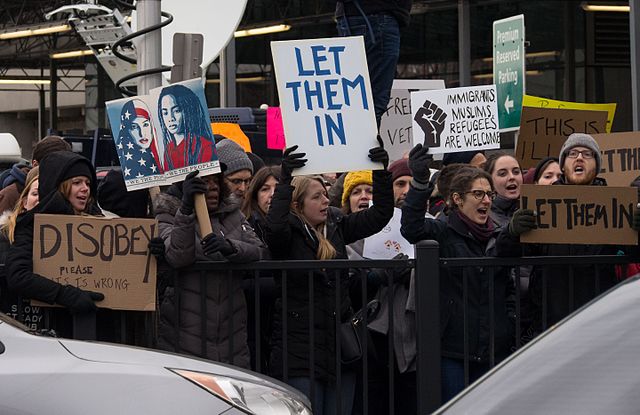
Activism is probably the lifeblood of a democracy. Despite the gloominess and scariness of recent governmental and corporate anti-democracy policies and behaviors, activism persists and can count its victories.
Many people are aware of the massive protests led by the Water Defenders against the Dakota Access Pipeline project last fall. Although Donald Trump is attempting to undo the success of that protest, the fight is not over yet, nor should it be.
Many people are also aware of and relieved concerning the huge and successful activist effort to resist Trump’s destruction of Obamacare, and encouraged by actions from the judicial system to restrain his racist immigration orders regarding Muslim countries.
And lots of people have read of the hundreds of “town halls” going on across the country right now, where local citizens have challenged their political representatives regarding distressing issues.
However, it is likely that fewer people know about other successful activist efforts that may be more local or fail to get the attention of the corporate media.
Here are just a few examples:
- the success of faculty at one university in persuading their university to speak out against the Muslim ban
- the success of activists in Portland, Oregon, in persuading their City Council to end its investments in corporations that have questionable records on the environment and human rights, including ties to the Dakota Access pipeline, the private prison industry and the Israeli occupation of Palestine.”
- the success of grassroots activists in Maryland in defeating anti-boycott legislation for for the third time in four years
- The success of Care 2 petitions in the efforts to reduce mistreatment of animals.
- The success of Change.org petitioners in stopping bear hunting in Florida for 2017 and 2018.
Opportunities for more activism abound. Voices for peace and social justice, and respect for Mother Earth, unite.
Continuing through April 23, Resistance Recess: Town halls, and other outreach activities to politicians
April 22 Earth Day Protest March for Science . Learn more about the achievements of activism on this day historically by clicking here
April 29, 2017 People’s Climate Mobilization
Lots more opportunities can be found at the World Without War events list aimed at achieving a world without war .
*Let’s not allow this victory to be shattered by the current GPS (greedy power structure) in DC.

